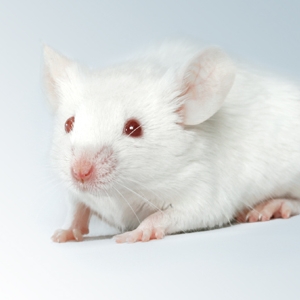Time again for a break from the COVID-19-related news… Today We’ll look at a couple of related studies by different research teams that bode well for future treatment of overweight and obesity. One identifies a new Fat-burning ‘switch’, and the other a new brain signalling system…
 Potential new obesity treatments turn on the body’s fat burning system
Potential new obesity treatments turn on the body’s fat burning system
without affecting food intake, muscle mass or body temperature.
Molecule turns on Fat-burning mechanism
A new discovery by a team from Virginia Tech not only helps explain how the body burns its fuel, but opens the door to a new approach to treating overweight and obesity.
The team, led by Dr. Webster Santos, recently identified a small mitochondrial uncoupler, named BAM15, that decreases the body fat mass of mice without affecting food intake and muscle mass or increasing body temperature. Additionally, the molecule decreases insulin resistance and has beneficial effects on oxidative stress and inflammation.
What’s a mitochondrial uncoupler?
It’s simply a switch that turns on the energy creation process inside cells to power body movement and other body functions, and BAM15 appears to flip that switch.
“Mitochondrial uncouplers are small molecules that go to the mitochondria to help the cells [produce more energy]. Effectively, they change metabolism in the cell so that we burn more calories without doing any exercise,” says Santos.
No serious side effects observed
An abstract of the study report notes: “Knowing that these molecules can change a cell’s metabolism, researchers wanted to be sure that the drug was reaching its desired targets and that it was, above all, safe. Through a series of mouse studies, the researchers found that BAM15 is neither toxic, even at high doses, nor does it affect the satiety center in the brain, which tells our body if we are hungry or full.”
Santos says the BAM15 treatment must be further refined and optimized for human application before it can be rolled out as a drug. He and partner Pharmacologist Kyle Hoehn are already working in that direction.
Even more potential benefits
BAM15, or drugs like it, could one day help fight aging and even slow the progress of neurodegenrative diseases such as Alzheimers’ Santos predicts: “If you just minimize aging, you could minimize the risk of Alzheimer’s disease and Parkinson’s disease. All of these reactive oxygen species-related or inflammation-related diseases could benefit from mitochondrial uncouplers. So, we could see this heading that way [too].”
Signal tells Fat-burning cells to turn on
We’ve all heard that certain types of cells can burn stored Body Fat to produce heat. Now, a team of researchers at the University of Michigan (UM) have determined that thermogenic fat cells, also called beige fat or beige adipocytes, can be triggered to start working by specific chemical signals.
The team, led by Dr. Jun Wu, has apparently found a promising new way to turn on beige Fat, burning fat and fighting overweight and obesity. That’s important, because the traditional understanding of the thermogenic Fat system has accepted that the common hormone catecholamine is the trigger for beige Fat to get to work. Unfortunately, the study report notes, this hormone also controls, “other important biological functions, including blood pressure and heartbeat regulation, so activating it in humans […] has potentially dangerous side effects.”
Eliminating side effects
The UM team reveals, in its study report, that it’s discovered another, safer way to turn on the thermogenic Fat burning process. The UM mechanism relies on a non-hormonal chemical messenger to engage a receptor protein in the thermogenic cell.
So far, the team has only demonstrated the Fat-fighting effects of its new discovery in mice. But, as we’ve seen before, what works in mice often works in humans too, albeit with some refinement.
More study required
“This pathway opens a whole new direction for approaching metabolic disorders,” said Wu, the study’s Senior Author. “Of course, this […] pathway also is involved in other important functions, so there is still much work to do to really figure out how this might work in humans. But we are encouraged by these initial findings.”
My take
We’ve seen quite a bit of promising new science lately, along various lines of inquiry, addressing the the global scourge of obesity and all the other diseases and conditions that can arise from it. Virginia Tech’s Santos sums up the potential of such new weight loss discoveries nicely:
“Obesity is the biggest health problem in the United States. But, it is hard for people to lose weight and keep it off; being on a diet can be so difficult. So, a pharmacological approach, or a drug, could help out and would be beneficial for all of society.”
I’m ready to try any new drug to turn on my Fat-burning system as soon as science says it’s ready…
~ Maggie J.

